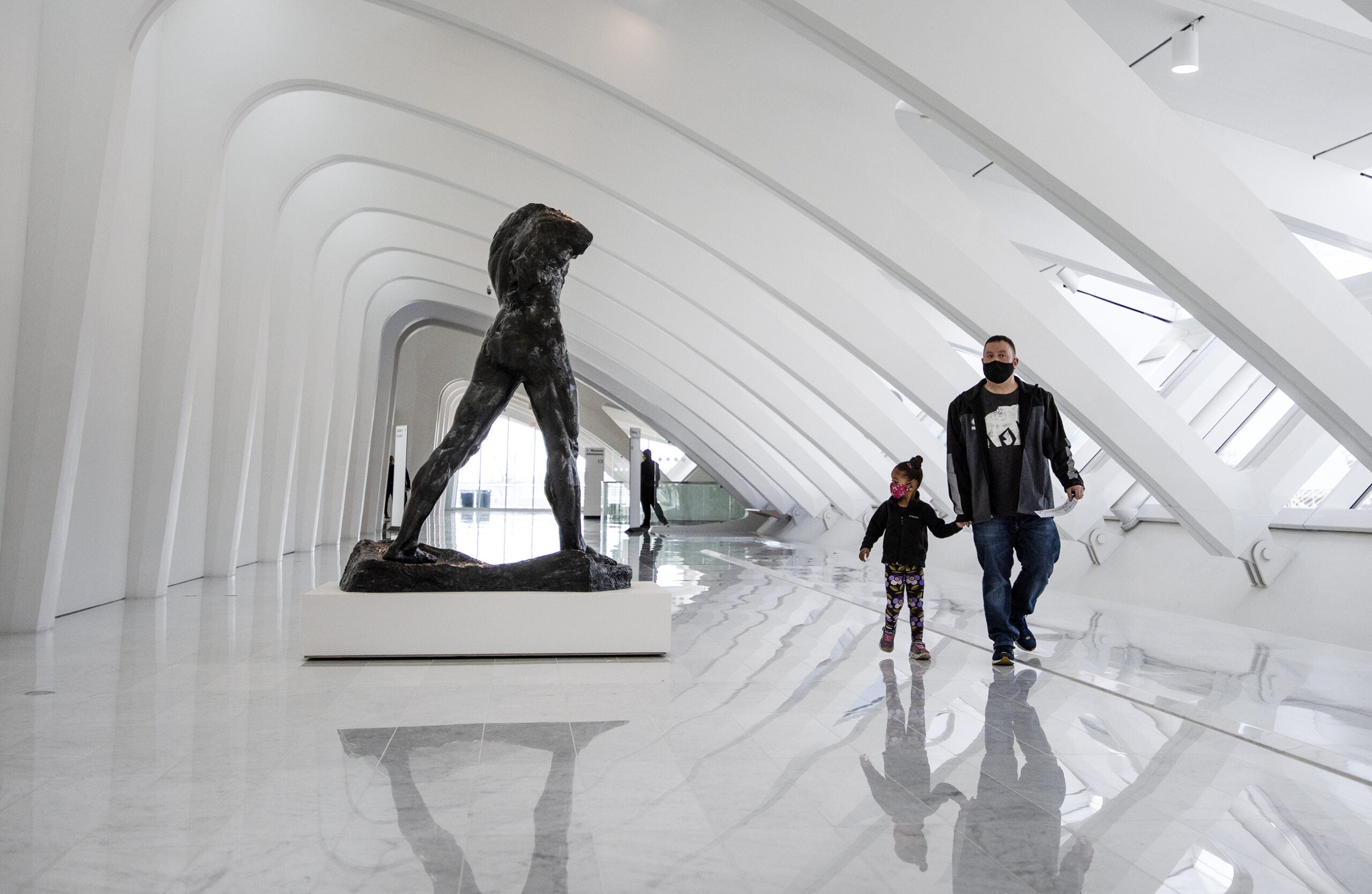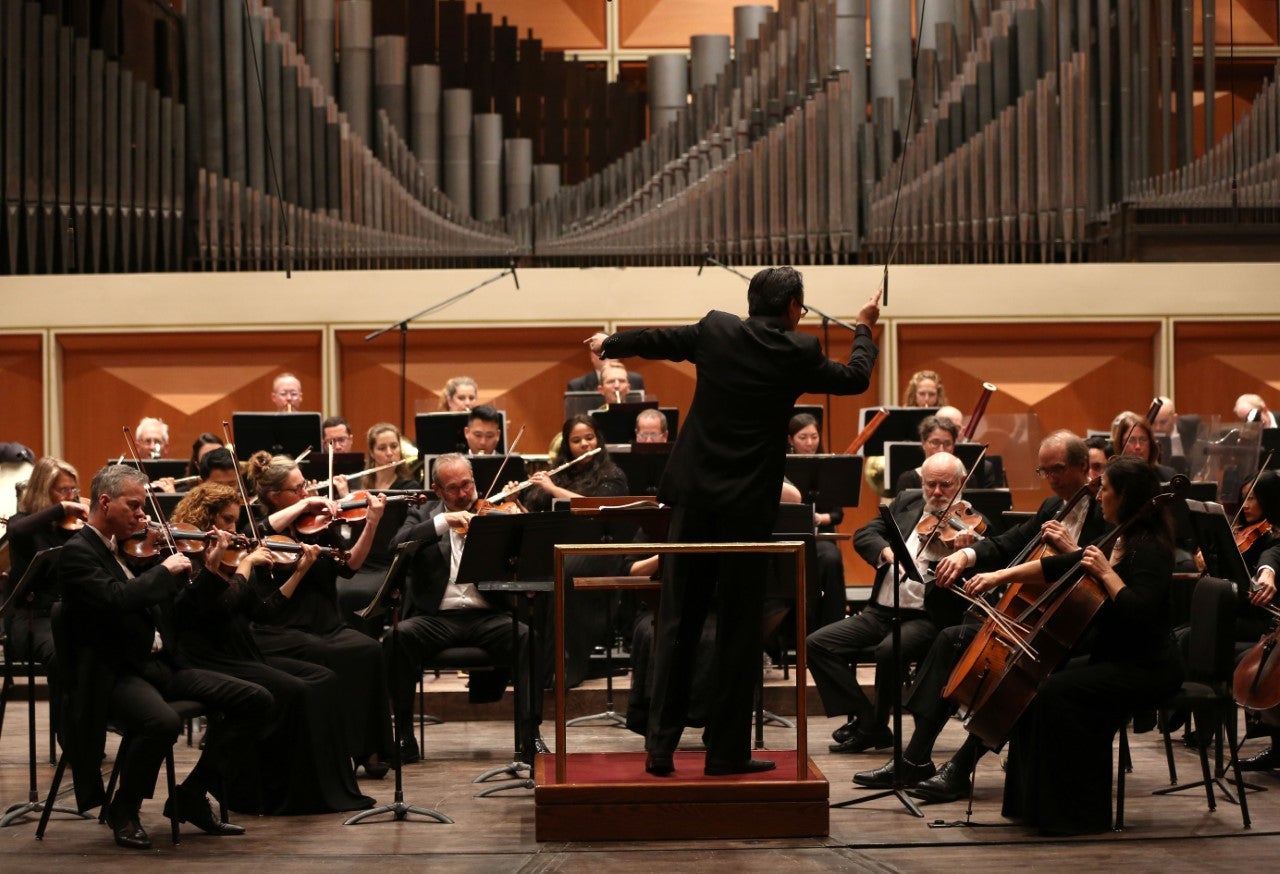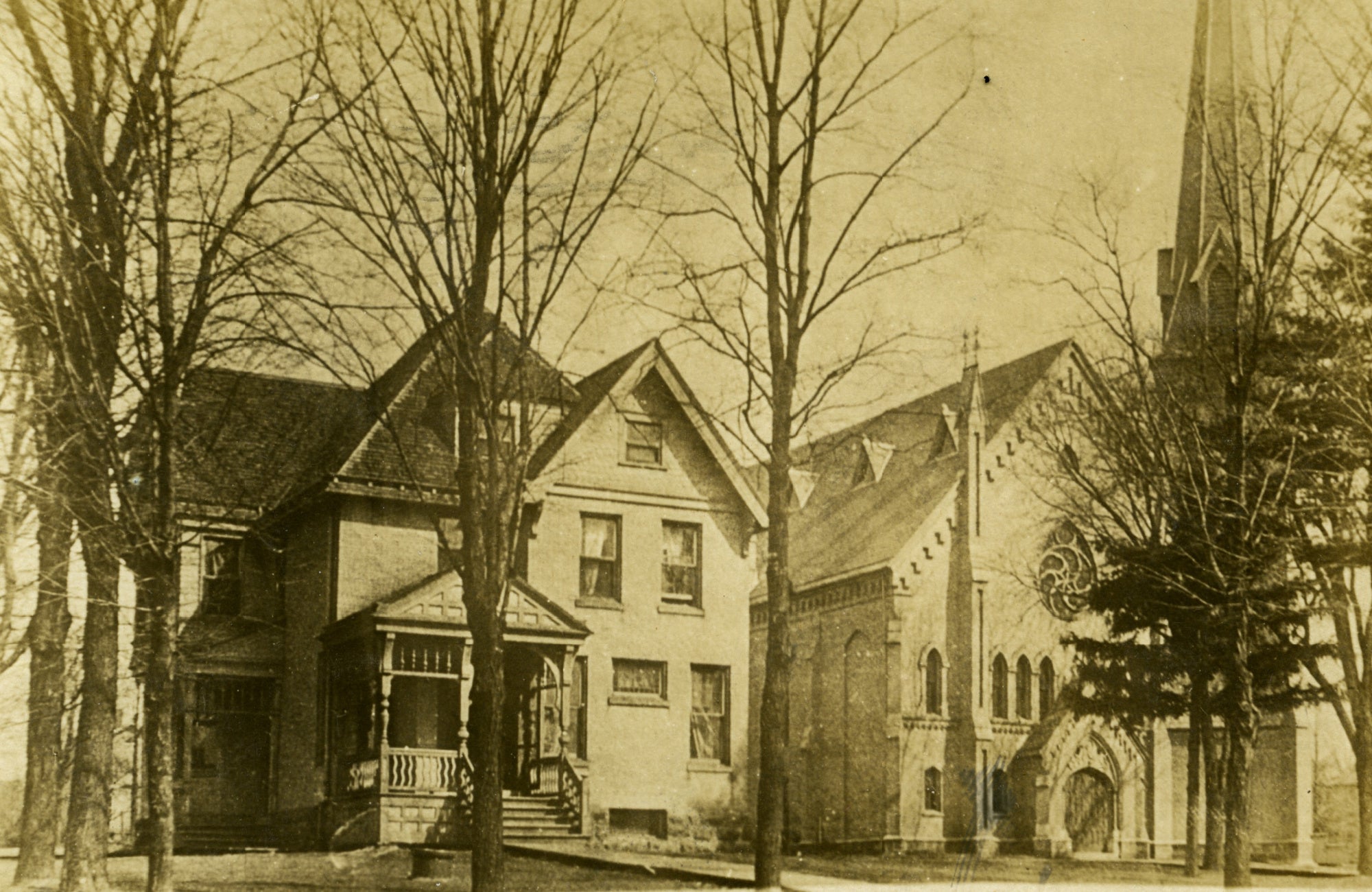Art centers in Wisconsin are scrambling to make up for the loss of tens of thousands of dollars in grant funding from the National Endowment for the Arts.
The cuts are part of recent NEA grant changes from the Trump administration impacting art organizations across the nation. Many, like the John Michael Kohler Arts Center in Sheboygan, were notified of abrupt grant terminations in an email on May 2.
“The NEA is updating its grantmaking policy priorities to focus funding on projects that reflect the nation’s rich artistic heritage and creativity as prioritized by the President,” the NEA email read. “Consequently, we are terminating awards that fall outside these new priorities.”
News with a little more humanity
WPR’s “Wisconsin Today” newsletter keeps you connected to the state you love without feeling overwhelmed. No paywall. No agenda. No corporate filter.
The email goes on to state the Trump administration’s priorities: “The NEA will now prioritize projects that elevate the Nation’s HBCUs and Hispanic Serving Institutions, celebrate the 250th anniversary of American independence, foster AI competency, empower houses of worship to serve communities, assist with disaster recovery, foster skilled trade jobs, make America healthy again, support the military and veterans, support Tribal communities, make the District of Columbia safe and beautiful, and support the economic development of Asian American communities.”
For the Sheboygan art center, the email meant that a grant funding its artist residency program was cut midway through.
Amy Horst, executive director of the John Michael Kohler Arts Center, said $18,000 remaining of a $45,000 award running from 2024 through 2025 was abruptly canceled.
“The NEA has always shifted and changed,” Horst said. “But it’s never been in the middle of a grant cycle, as this one.”
In the past over 20 years, her organization has received over $1 million in NEA funding, she said. The funds are key to the mission of local arts centers like hers, Horst added.
“Oftentimes, these grant funds come and validate additional people to invest in impactful projects,” she said. “So the ripple effect is far beyond the cut in funding directly, and goes well into the entire arts ecosystem.”
The center has appealed the NEA decision to cut its grant, hoping to explain how their mission aligns with the administration’s goals to “make America healthy again,” she said. And it still plans to host artist Lonnie Holley, whose residency was set to be funded by the grant.
“These projects are planned years in advance,” Horst said. “We’re currently looking at other areas in our budget that we can cut so that we can really continue forward and honor the commitment that we made to Lonnie Holley.”
Individual donors have also offered to help out, she added.
“He’ll be working with youth in the community to create sculpture, write poetry, improv, music,” Horst said of Holley’s residency.
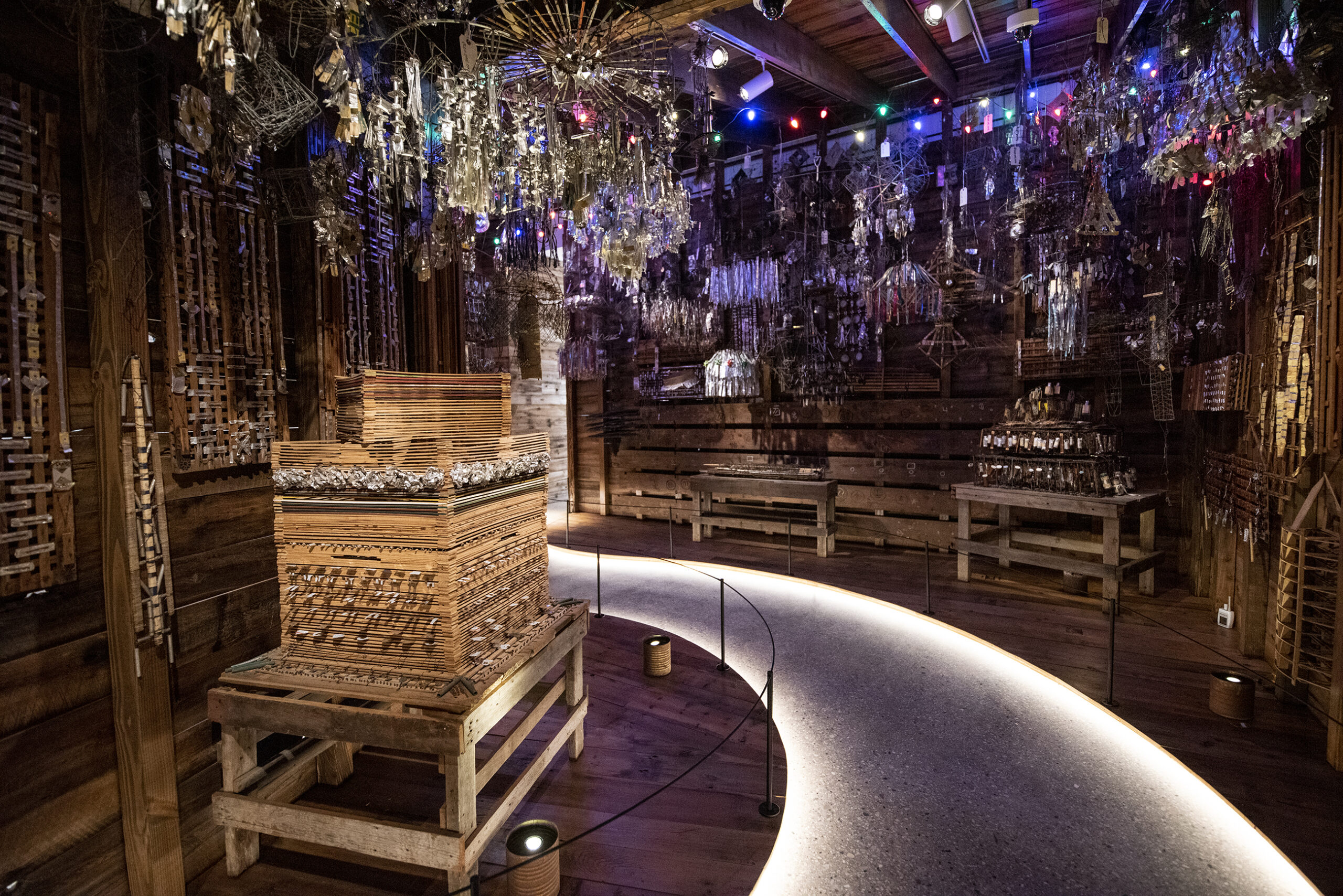
Wisconsin Arts Board awaits NEA funding promise
While the Sheboygan center was awarded its grant directly from the NEA, others receive the federal funds from grants administered by the Wisconsin Arts Board.
For example, Executive Director Tiffany Rodriguez-Lee at the Center for the Visual Arts in Wausau said her organization applied for and received a “Creative Communities” grant from the board for fiscal year 2026. The grant will go toward educational programming for minority communities, offered for free, she said.
But, Rodriguez-Lee said, because of recent NEA changes, the board can’t tell her how much funding the center will ultimately be awarded, making it difficult to plan the programming. It’s a “strange situation I’ve never been in before,” she said.
George Tzougros is the Wisconsin Arts Board’s executive director.
He said right now, half of the board’s funding comes from the NEA and the other half comes from the state. His team is waiting to receive its NEA funding offer letter for fiscal year 2026.
“It’s a little later than normal, but that’s OK. We’re led to believe that it’s going to be OK,” Tzougros said.
He said while he expects the board’s funding letter to come in soon, regional art centers who apply directly to NEA grants may have trouble finding alternative funding sources to make up for grants that have been cut.
“It remains to be seen what programs will exist going forward,” Tzougros said.
“If those programs are not accepting, or the amounts available are diminished, that’s going to cause the arts organizations to have to look elsewhere for support,” he added. “And that’s a challenge, as of this moment, given the economy and the fact that there are other needs in the community that are seeking foundation and corporate support. So things are a little strapped.”
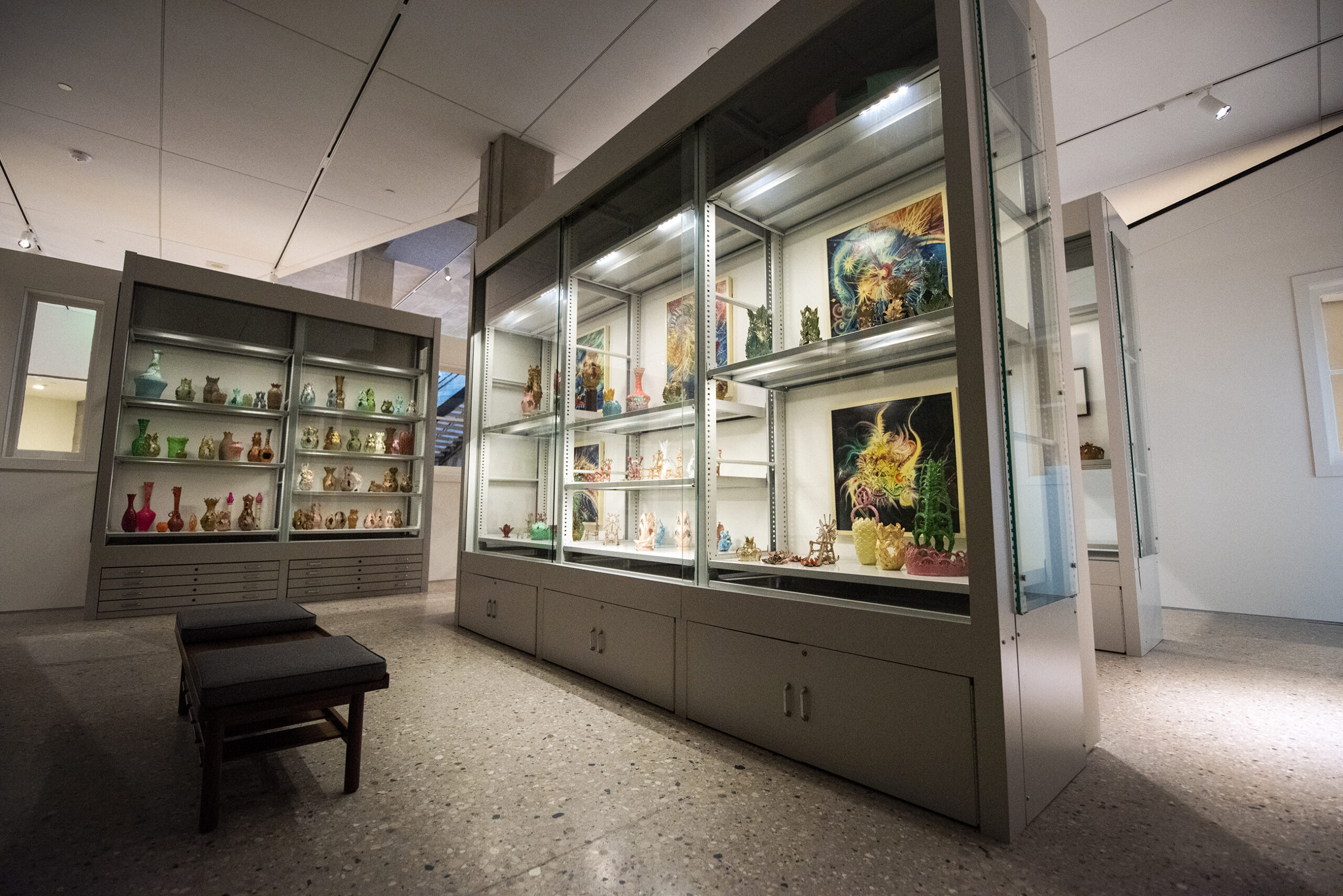
One La Crosse production is saved by community donations
For La Crosse Community Theatre, NEA cuts threatened its participation in “The Penguin Project,” a program that provides theater opportunities for youth with disabilities across the nation.
“It gives them a chance to be on stage and be part of a performance that they normally wouldn’t be able to do,” said Erik Vose, the executive director of the theatre.
The organization had been awarded an NEA “Challenge America” grant for $10,000 to fund the program in January, he said.
“We were all set,” Vose said. “And then in early May, we received an email saying that they were withdrawing the offer after all.”
His team put out a call for donations to the theatre community, and they quickly replied.
“We have made up that $10,000 and then some. So we’ve got the money that we need to continue this year and have a little bit built up for next year,” Vose said.
The Challenge America grants have been canceled, with former applicants encouraged to apply for the NEA’s “Grants for Arts Projects” category instead, according to its website.
“People love this program so much that they’ll do whatever it takes to make sure we can keep it going,” Vose said.
This year’s Penguin Project production, “The Big Bad Musical,” opens on June 13.
Wisconsin Public Radio, © Copyright 2026, Board of Regents of the University of Wisconsin System and Wisconsin Educational Communications Board.





